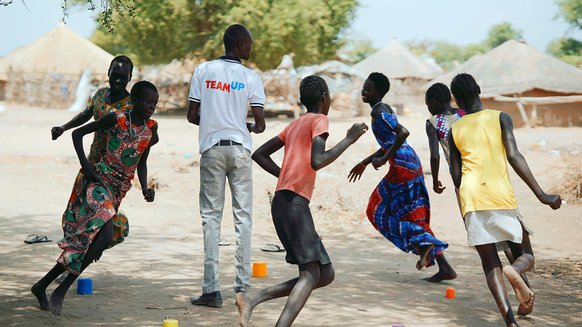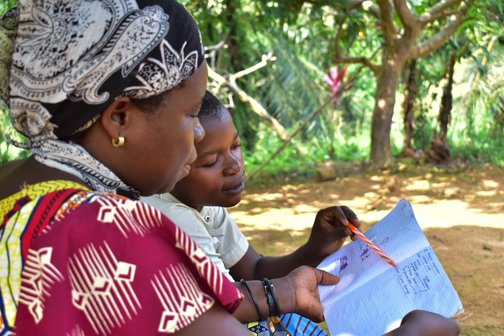Football Offers Youth in Colombia an Alternative to Violence
Aug. 12, 2022
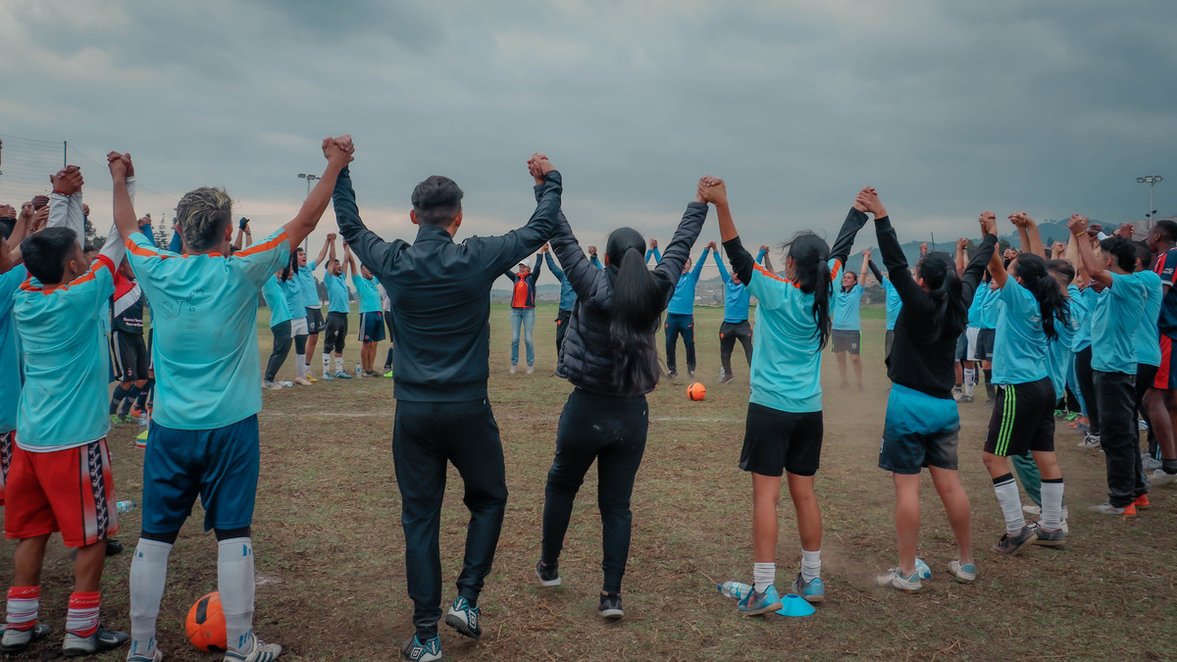
Lack of opportunity
According to the National Statistics Department, the unemployment rate among young people in Colombia has reached a historic high. Of the 10.9 million youth living in the country, more than three million are out of work. On top of this, many families are unable to afford the cost of sending their children to school or university.
Meanwhile, the impacts of the COVID-19 pandemic are rearing their head, revealing a growing discontent and disillusionment among young people - reflected in last year’s wave of protests across the country's major cities.
These developments, in addition to the long-standing challenges posed by the internal armed conflict, have disproportionately affected adolescents. In the capital, Bogotá, the social and economic exclusion of youth has combined with an increase in criminal activities, making them particularly susceptible to recruitment by armed groups and actors.
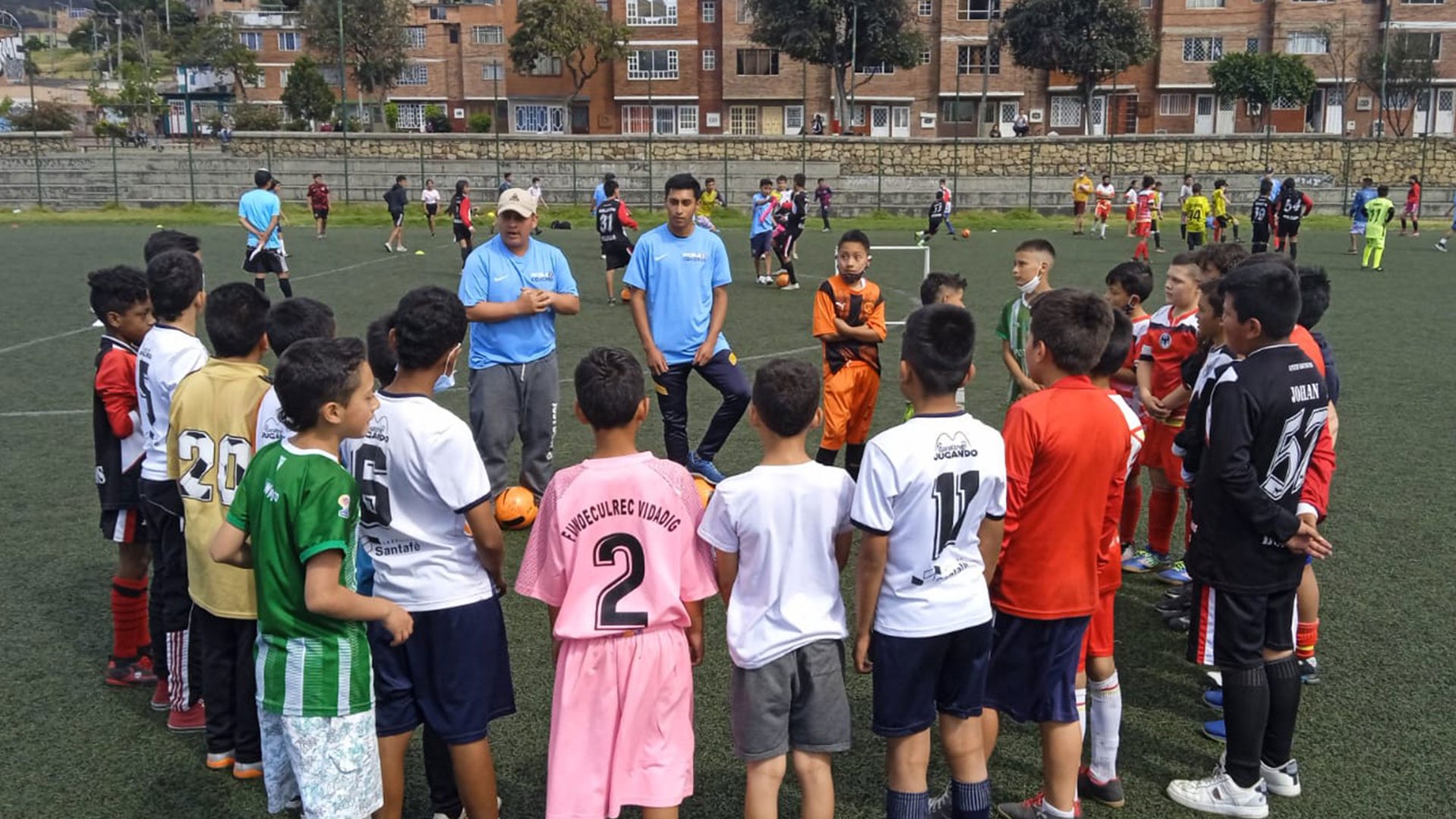

Psychological effects
As War Child, we know the psychological effects of this exclusion all too well. From a growing distrust of others to a loss of hope for the future altogether, the evidence suggests that young people are turning to criminal gangs to compensate for an absence of self-esteem and a sense of belonging.
Young people like 28-year-old Manuel. As a child, Manuel faced economic hardships and growing violence. But his passion for football gave him a purpose in life. At 16, he decided to study sports science and started to organize sports events for children and young people, but a criminal group's extortion forced him to stop his work.
Manuel was inches away from taking the wrong path when he came across our Play it For Life and Future project. This project equips young women and men with skills to become positive role models and community mobilizers. The young coaches create a lasting social impact on the children and communities in which they live.
Play it for Life and Future
The 20-week program - WorldCoaches - sees licensed Royal Netherlands Football Association (KNVB) instructors train young people to become certified football coaches. In selecting the participants, we paid particular focus to youth most at risk of dropping out of society. We also got famous players like Johan Neeskens involved.
And it’s not just about passing on their finest footwork - youth learn how to transmit important life skills such as self-awareness, empathy, critical thinking and dealing with difficult situations. They also learn the fundamentals of psychosocial support.
“Through the training, I was able to recognize when one of my trainees was showing suicidal behaviour and refer them to more specialized support”, says Yesid, another young coach who took part in the program. “That’s what stands out about this project”, he continues. “It changes the young person’s perspective, but there is also a transformation in the children - both on and off the football court.”
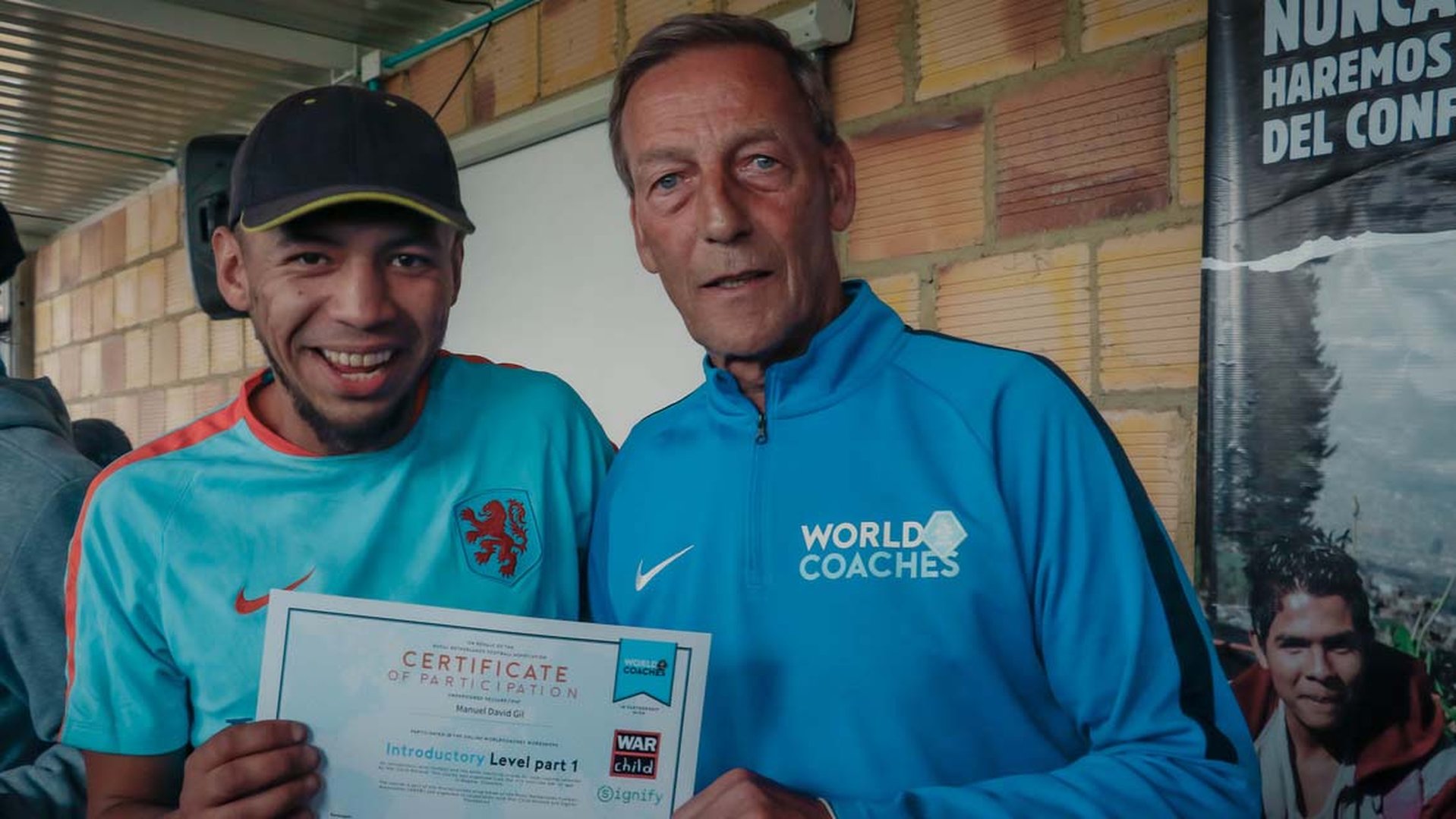
Manuel, 28, at the Play it for Life and Future closure, alongside Johan Neeskens
Next Steps
To date, we have succeeded in training 81 young women and men aged 18 to 28 in these combined skillsets. Our team in Colombia has been monitoring the youth during their coaching sessions to ensure good practices.
Although the future looks bright for the young participants of the project, we must also not shy away from the challenges that exist. Once youth complete the training, they return to their life and a difficult job market. While it won't be an easy journey, the skills acquired in the training and the participants' persistence make us confident that they will make a difference in their communities.
For Manuel, the project is a stepping stone on his journey to bigger things. “I founded a sports school that started very small but is rapidly growing. Play it For Life and Future project was one of the most eye-opening experiences of my life. It changed my perspective on sport and its role in society. It is now our school's mission to foster positive social change, along with building professional players.” He says smiling. “This is just the beginning.”
